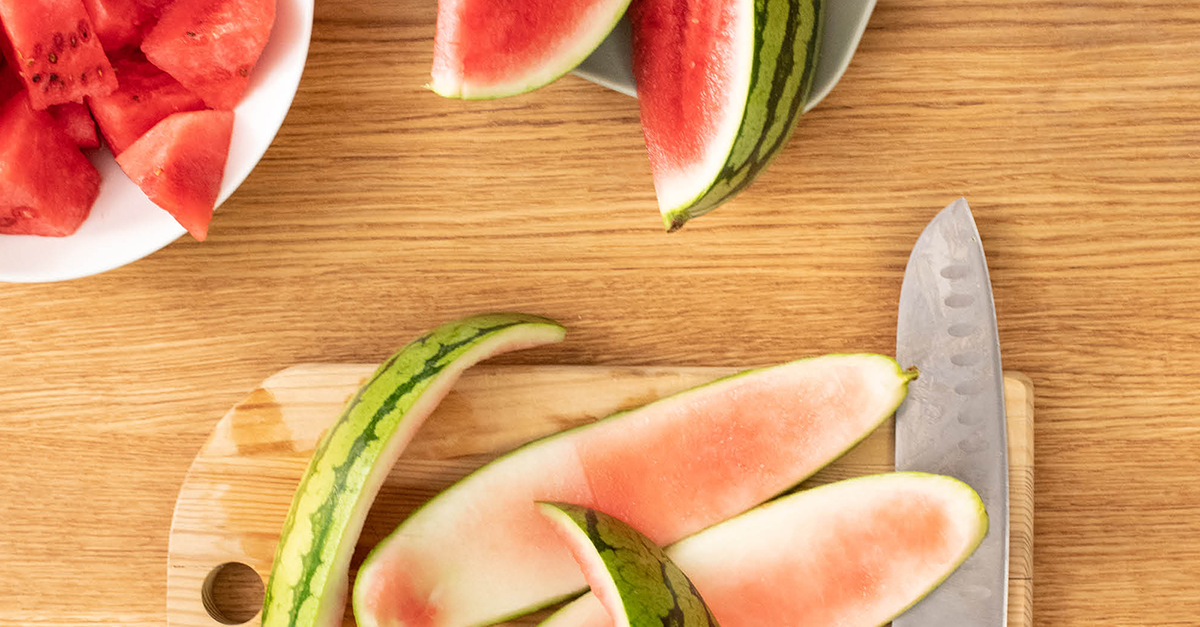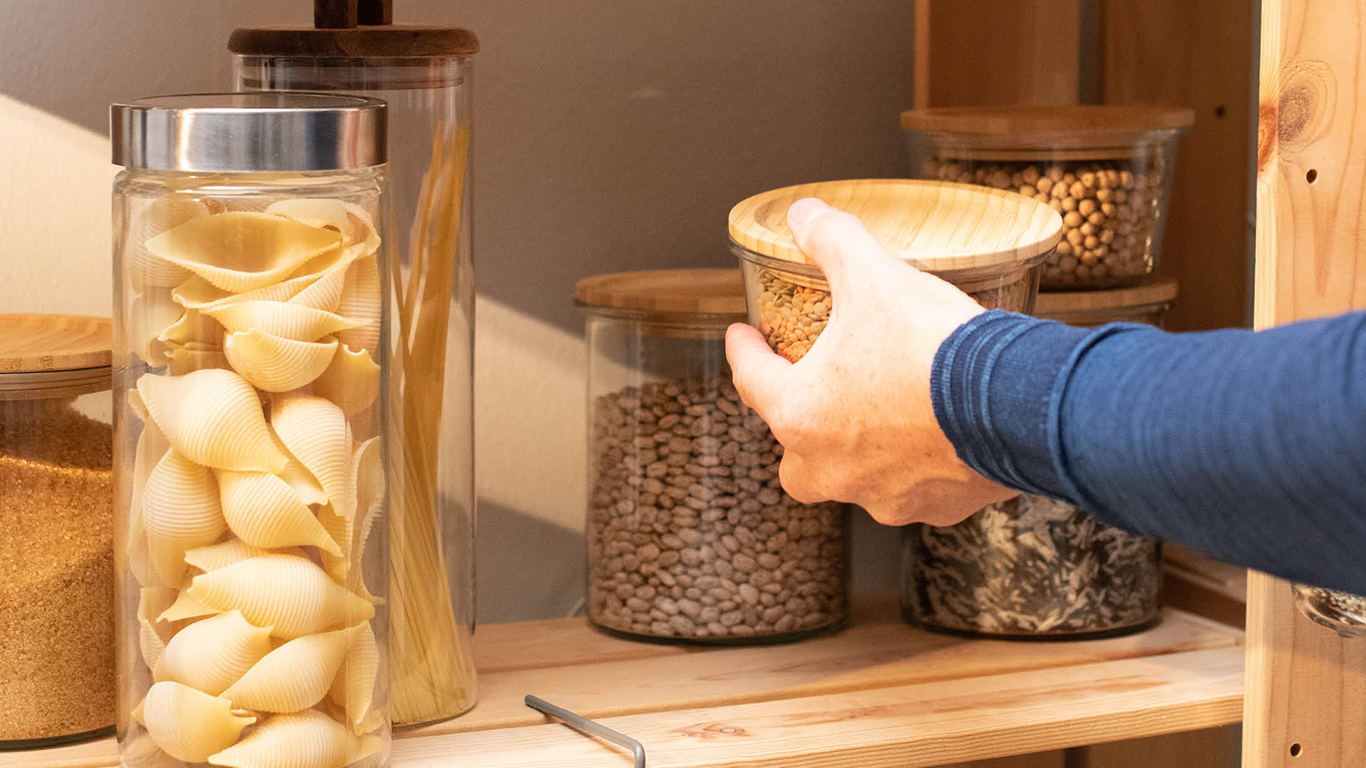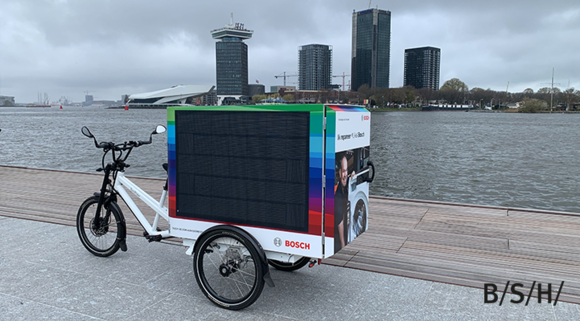Waste Watchers: Inspiring ideas for food waste management
7 minutes
Food waste is a waste of resources, time and money. Wasting food creates all of the environmental impacts of food production without any of the benefits of people being fed.
*Food waste facts
- 2019: around 931 million[SE(1] [GP2] tons of food was wasted = 17% of total global food production
- The weight roughly equals that of 23 million fully loaded 40-tons trucks — bumper-to-bumper, enough to circle the Earth 7 times.
- 61% in households, 26% from food service and 13% from retail.
- On a global per capita-level, 121 kilograms of consumer level food is wasted each year, with 74 kilograms of this happening in households.
*UNEP Food Waste Index Report 2021
Our brand Bosch's Product Division Consumer Products team created a content series that tackles the issue of food waste with helpful tips & tricks and valuable information for more conscious handling of food and the mindful avoidance of waste.
We sat down with Steffi Geiler who’s responsible for Editorial Content Development at Product Division Consumer Products to talk about how we can help consumers live healthier lives by wasting less.
What was your inspiration for the Waste Watchers campaign?
Steffi: Well, it wasn’t solely my idea. We developed it together in a diverse team consisting of colleagues from our agencies and some country colleagues. Especially the colleagues from our agency @MSL and @Marusa Miklavcic from our Adriatic East Region have contributed their ideas. All our content ideas were based on an analysis of the most relevant topics for our community. "Saving food” definitely clicked with us. Our brains and hearts were running at full speed and producing tons of content ideas which in the end turned into one cohesive content series.

What changed for the modern consumer
The modern consumer understands that together our actions can make a difference – for ourselves, for others, and for the environment. Using food resourcefully is key to a sustainable future. However, even the best intentions sometimes lack know-how, practicability or inspiration.
Their plan included rethinking food as well as food storage and organization.
What led to this shift in awareness?
Steffi: I think there are a couple of occurrences leading to this shift. The increasing presence of food waste in media leads [us] to re-think what and how we eat. The pandemic definitely also played a part in accelerating especially people’s actions. People were forced to stay at home and cook more often - oftentimes for the whole family three times a day.
Going to the grocery store was much more inconvenient or even perceived as dangerous. Thus, good meal planning was key. What might have started for practical reasons in many households also came along with a different appreciation of food.
Is there any correlation between Smart Kitchens and decreased food waste in your opinion?
Steffi: Well, I think there is no way around to engage yourself in the topic, seek information and simply explore ways of saving food which work for your very personal daily life. But smart features can make a difference, for sure. The camera in the fridge for example. I mean, how amazing - you can check your fridge’s content on your mobile phone while you are in the supermarket. I guess that would have saved me from buying the third (or fourth or fifth😉) package of feta cheese a couple of times. Luckily, they have a long shelf life.

Preserve food and pimp your pantry
Watermelon rinds, eggshells, broccoli stems; what might have been considered waste is now being reassessed in a global shift in consumers’ mindsets towards sustainable living.
We’ve all been there: put the veggies in the wrong spot, which made them spoil. Bought too many strawberries and they’re about to go to waste any minute now. Made too much cheesy casserole that couldn’t be finished even on the best foodie days.
It may sound basic but makes all the difference: storing & preserving food correctly reduces food waste. Our brand Bosch offers consumers [SE(3] [GP4] guidance on how to extend the shelf life of food and leftovers – from helpful fridge know-how, to tips on how and where to store food properly, to various methods for preserving it for longer
Food waste is a universal issue that drives people across cultural and generational borders with different takes and perspectives.
Are there any culturally specific examples you can share with us e.g., how is food waste different in one country in contrast to another?
Steffi: I’m pretty sure that especially the challenges of how to keep food fresh are different from country to country. What’s recommended to store outside of the fridge in a dry place at room temperature in Germany (e.g. tomatoes, papayas, mangos) might need to go to the fridge in countries with hot temperatures and high humidity.
Are there any country examples of food ideas they used?
Steffi: There are many great country examples already. More than 15 countries are currently using the content leading into more than 170 posts up to now. For example, check out the Instagram channel of Bosch Home Slovenija or Bosch Home Belgium.
Any other channels we should check out for Waste Watchers?
I recommend checking the Slovenian Instagram account: Bosch Home Slovenija. They are using the content a lot and even created a story highlight) and extended their owned content by a local influencer activation.




